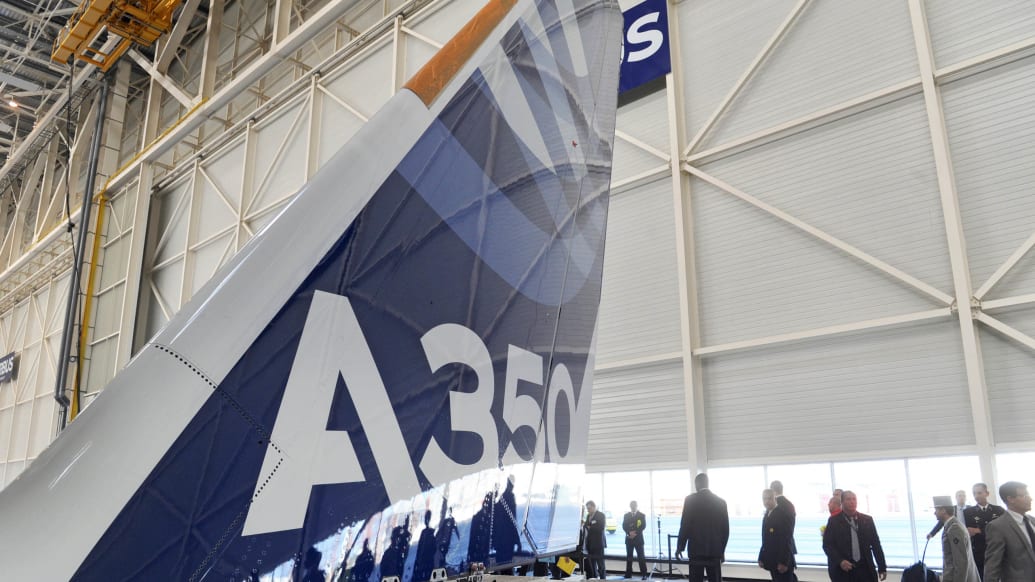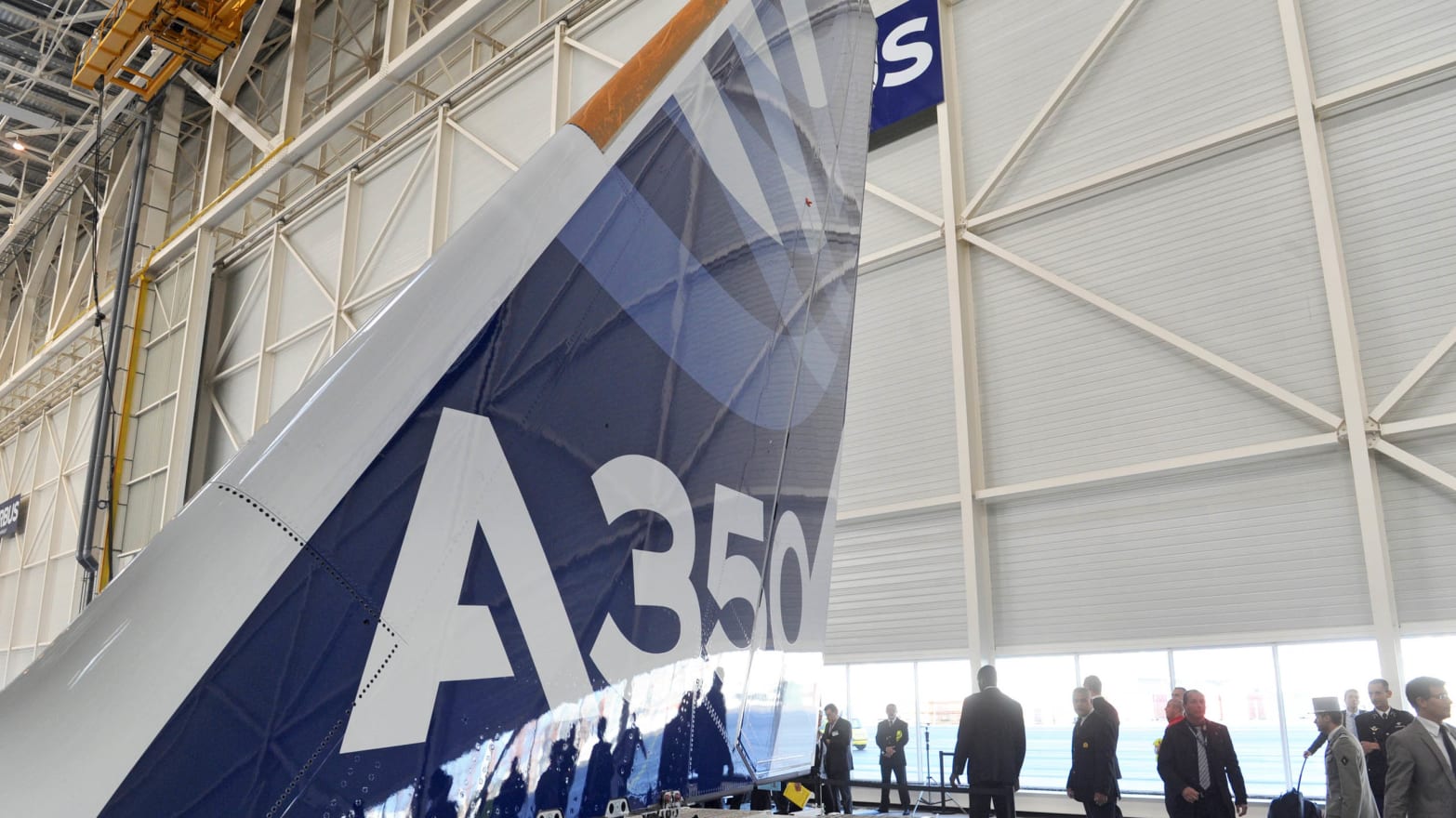Today in Toulouse, France, the CEO of Airbus, briefing journalists on his company’s 2012 results, took great care not to seem to be exploiting the problems of its archrival, Boeing.
“Both Boeing and Airbus give the same priority to safety,” Fabrice Brégier said diplomatically. “This is paramount. There is a decision of the FAA [to ground the Boeing 787 Dreamliner], and this decision confirms that aviation is one of the safest forms of transport around the world.”

Well, yes to that. After all, any airplane manufacturer knows that every new airplane can harbor unforeseen flaws. Airbus has recently had serious problems with the wings of its Superjumbo, the A380, and a close brush with disaster when an engine on the A380 exploded. Safety should never be the subject of a claimed competitive advantage.
And yet Airbus is likely to gain from the current Dreamliner crisis. Sitting in an assembly plant not far from where Brégier was speaking was the first A350, the direct rival to the 787, due to make its first flight this summer.
In an ironic twist of fate, the 787 has served, in a sense, as a test vehicle for the A350. Boeing made a leap into the unknown by building many new technologies into the 787 and, as a result, delivered the plane more than three years late. Consequently, Airbus, starting late, was given more time to catch up—and, at the same time, to learn what not to do.
One thing they didn’t do was to turn over many of the A350’s critical systems to electrical power generated on board, as Boeing did, rather than to power drawn from the two main engines. They did, however, choose lithium-ion batteries, which are the focus of investigations into the 787’s recent fire emergency in Boston, as part of their electrical system for the A350.
Asked about this, Brégier said: “We went through discussions with the regulatory agencies—EASA [European Aviation Safety Agency] and the FAA—and they seemed happy with the A350 electrical architecture. Regarding the A350, we’re in the development phase. We will have opportunity to change things. With regard to the electrical architecture, we see no need to change.”
To be sure, the A350 had an uneasy birth. At first Airbus believed it could compete with the 787 simply by upgrading its existing A330 twin jet, adding new wings and other advances but basically leaving the same fuselage. But when airlines and—critically in this case—the airplane leasing companies who supply many airlines looked at the first version of the A350, they pronounced it half baked. It would be no match for the Boeing.
Airbus swallowed hard, confessed that the design was not good enough and, even though it meant adding two years to development, produced an all-new airplane. Notably, its fuselage was designed to be wider than the 787s, which means that airlines can configure the cabin with rows of 10 seats across in coach rather than nine, a telling economic advantage.
The A350 is not only a serious competitor for the 787—airlines have so far ordered more than 590 against the 787’s total of more than 840—but it is vital to Airbus’s future profits. Production of the A380 Superjumbo has been constipated by technical glitches, new orders have been scarce, and any chance of it turning a profit is years away. Meanwhile, the A350–Boeing 787 size of airliner, carrying between 250 and 350 passengers efficiently over long distances, is where the future and the money is—alongside the most prolific milk cows of smaller size like the A320 and Boeing 737.
Today, all of Boeing’s energies are consumed with proving that the 787 is safe to fly. But if regulators want changes, particularly to the batteries used in the electrical system, any of the possible solutions would mean more delays—and a growing chorus of complaints from airlines seeking compensation for the costs to them of the groundings and late deliveries.
This crisis has collateral costs for Boeing. It was ready to attack the A350 from two sides: with the 787 and, in the near future, with a revamped 777, an enormously successful, slightly larger airplane that, given new wings, could block Airbus’s plans to deliver a larger A350. Now, with its resources stretched, this strategy has been compromised.
I don’t for a minute doubt Brégier’s sincerity when he says that the grounding of the 787 is not a subject for celebration. Nonetheless, as he looks into the future of this combat of titans, he will be a little more confident than he might have been only weeks ago.

